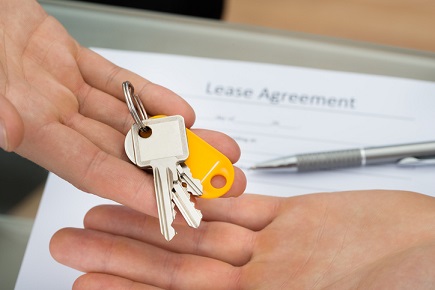Leases signed in Ontario after April 30 this year will have to comply with the newly announced standard leasing form—which will apply to rented homes, apartment buildings, condos and other secondary units—but according to the Federation of Rental-Housing Providers of Ontario, it isn’t necessary.
“From our perspective, from the industry’s perspective, we didn’t think we needed one,” said FRPO President and CEO Jim Murphy. “There are a lot of leases out there that have been accepted by courts, accepted by landlord tenant boards, so most of our members would use leases that we provide and that others provide, and they’re fine and they work, but as part of the Fair Housing Plan there was development of standard lease.”
While Murphy doesn’t think the lease is necessary, he doesn’t think it contains anything problematic. In fact, from the FRPO’s perspective, it could have been a lot worse.
“There are unique exceptions that, in certain places across the province, a standard lease can’t deal with, like parking,” said Murphy. “If someone is in a regular apartment building or a fourplex, there will be issues around insurance that tenants may have to carry. There are potentially unique circumstances that I don’t think any standard lease could deal with—they could deal with information about tenants like paydays or which day rent is due, or who the agreement is between—but we’re pleased the government has accepted that some items cannot be included.”
To elucidate his point, Murphy points to British Columbia, where the government has laid out suggestions for leasing agreements but leaves the terms of final agreements up to the parties involved.
“We’d have liked the B.C. model, but the Ontario government went in a different direction and came up with the standard lease.”
Mary Di Felice, an office manager with REMAX Premier, has seen many leases that contained all sorts of illegitimacies.
“By and large, people don’t know how to complete them,” she said. “It depends on who prepares them. If it’s a landlord, they go on the internet and they get a shell form and then fill it out, but they sometimes don’t know the law and they fill it out with stuff that’s contrary to the Landlord Tenant Act—things like key deposits and security deposits. People unfamiliar with legislation fill these out incorrectly.”
Ontario becomes the second province after Nova Scotia to enact into law a standard lease.
Related stories:
Neil Sharma is the Editor-In-Chief of Canadian Real Estate Wealth and Real Estate Professional. As a journalist, he has covered Canada’s housing market for the Toronto Star, Toronto Sun, National Post, and other publications, specializing in everything from market trends to mortgage and investment advice. He can be reached at neil@crewmedia.ca.









